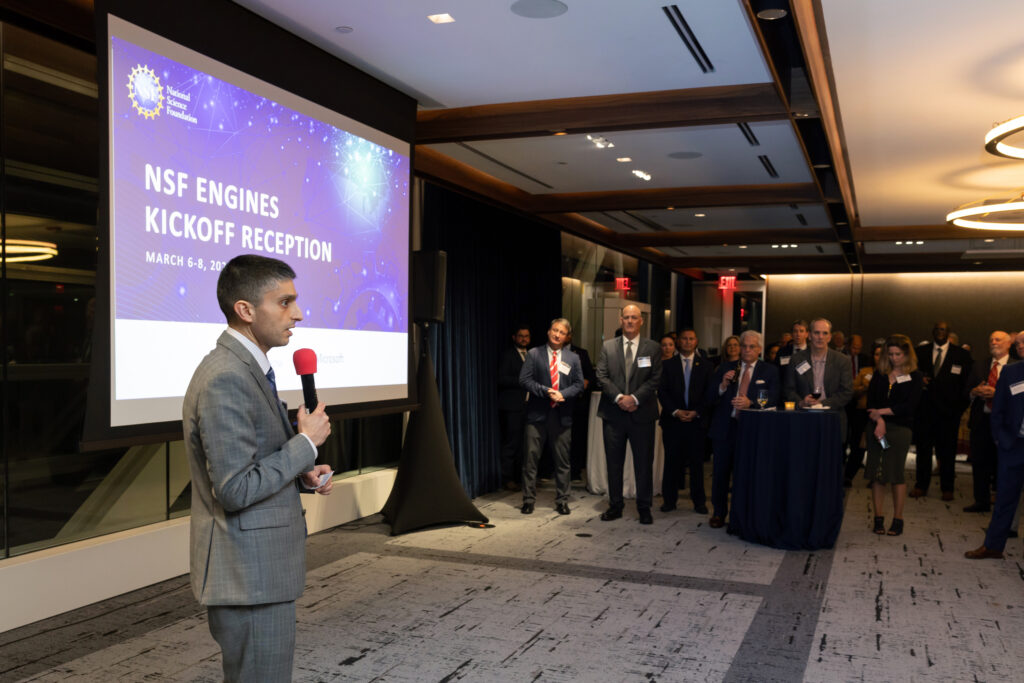New National Science Foundation program seeks to bolster tech nationwide
Ten teams across 18 states receive share of $150M investment in strategically important industries, including semiconductors, regenerative medicine, and energy storage
The semiconductor shortage—brought on by pandemic-induced supply chain challenges—caused business leaders and policymakers alike to work to bolster domestic chip manufacturing.
A coalition of Central Florida research institutions, local government, nonprofits, and businesses have worked to build a semiconductor research and development hub in the region. Now, their work will be accelerated by a $15 million investment from the National Science Foundation’s Regional Innovation Engines program.
“We believe the future of America is through science and through the work that you’re doing. I couldn’t be prouder of the work we’re doing in Central Florida. We are advancing micro packaging from microchips. We’re about 30 miles away from Cape Canaveral, where we launch rockets twice a week,” U.S. Rep. Darren Soto, a Democrat from Florida, said at a recent event held at the Johns Hopkins University Bloomberg Center, celebrating the 10 inaugural awardees of Regional Innovation Engine’s funding.
The awardees—10 teams across 18 states—include an energy storage project in upstate New York, a North Carolina regenerative medicine program, and a climate reliance effort based in Colorado and Wyoming. The Paso del Norte Defense and Aerospace Innovation Engine, for example, brings together The University of Texas at El Paso and NASA’s Johnson Space Center to strengthen the region’s burgeoning aerospace and defense manufacturing industry. A coalition led by Arizona State University will work to boost water security in the area as climate change makes extreme droughts more common, while also training a diverse workforce for the coming challenges.

Each of the 10 awardees will receive $15 million over the next two years, with the chance to earn $160 million each over the next decade. NSF’s initial $150 million investment is being matched nearly two to one in commitments from state and local governments, other federal agencies, philanthropy, and private industry.
“The inaugural NSF Engines awards demonstrate our enduring commitment to create opportunity everywhere and enable innovation anywhere,” NSF Director Sethuraman Panchanathan said in a statement.
The program, led by the NSF Directorate for Technology, Innovation and Partnerships (TIP), seeks to strengthen strategically important industries in the country while expanding economic opportunity, said Justina Gallegos, the deputy director for Industrial Innovation at the White House Office of Science and Technology Policy.
“Innovation can come from every location in America,” she said. “Our place-based strategy is really about—at the heart of it—folks not needing to leave their home to find a good job, but also to participate in the future of the economy.”